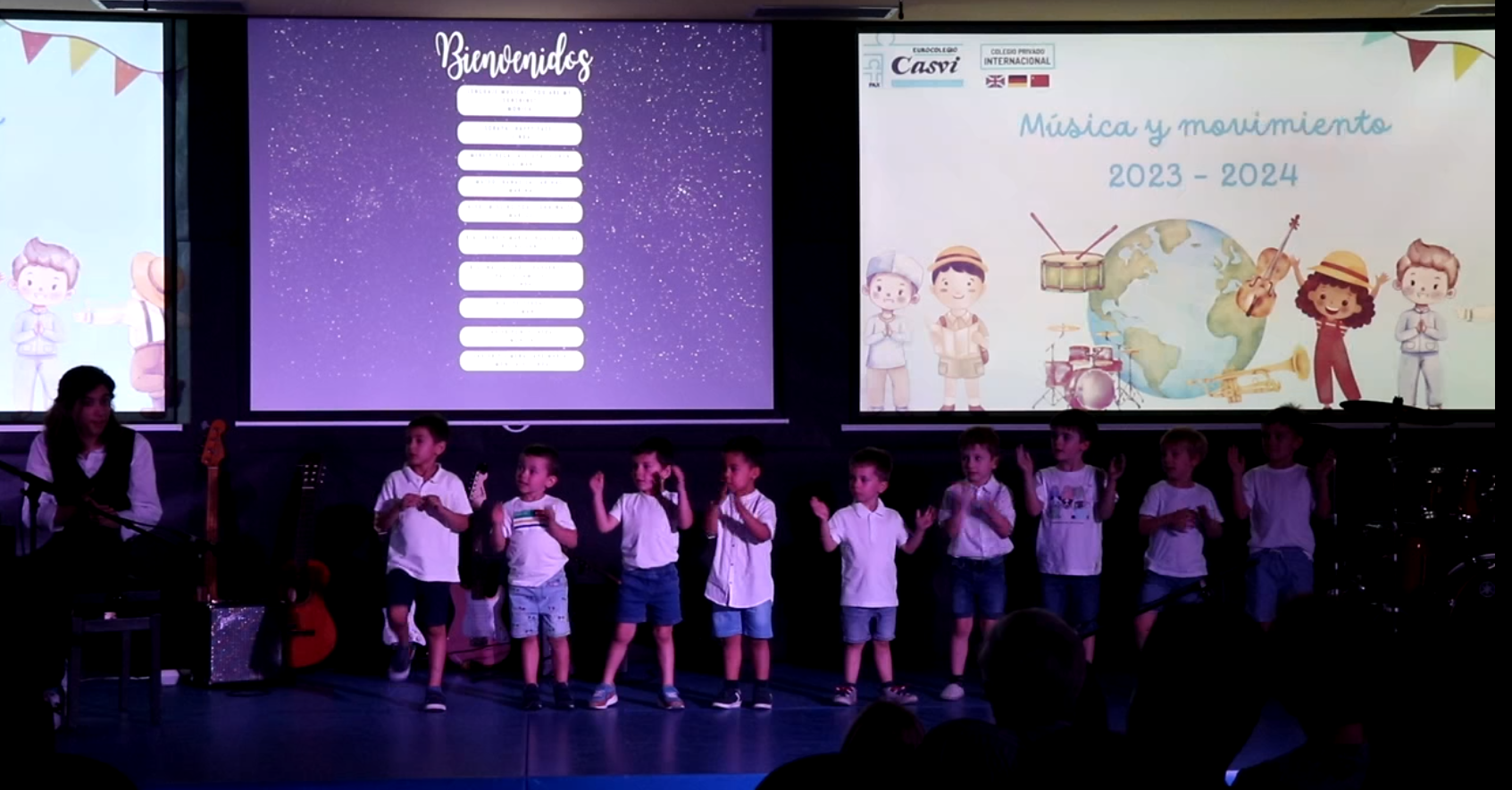Language development in the early years is essential for communication, socialisation and learning, yet more and more children are experiencing difficulties in this area, which can affect their academic performance and confidence in speaking. However, more and more children are experiencing difficulties in this area, which can affect their academic performance and confidence in speaking. How can we stimulate children’s language effectively? One of the most powerful and scientifically proven strategies is music. Through rhythm, repetition and melody, children strengthen their language skills in a natural and fun way.
WHY DO SOME CHILDREN HAVE DIFFICULTIES IN LANGUAGE DEVELOPMENT?
Many children experience delays in language development due to a variety of factors. These include lack of early stimulation, too little contact with vocabulary-rich language or too much screen time without verbal interaction.
According to a study by Stanford University, the infant brain is most receptive to auditory stimuli in the first six years of life. During this period, exposure to sounds and linguistic structures is essential for proper language acquisition. However, if this stimulation is insufficient, difficulties in pronunciation, comprehension and verbal fluency may arise.
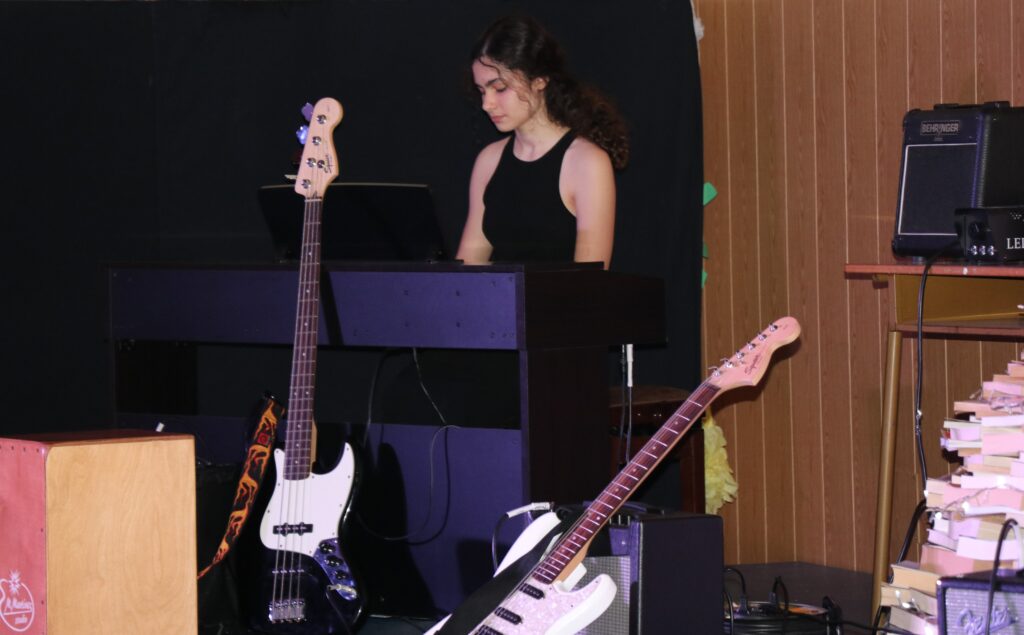
THE IMPACT OF INADEQUATE STIMULATION IN CHILDHOOD
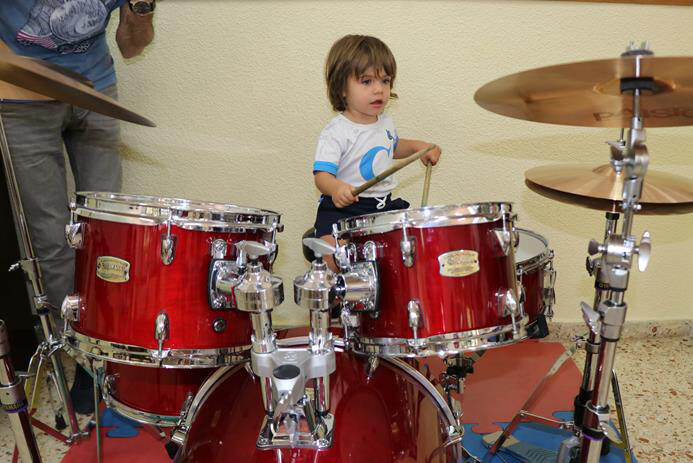
Not paying enough attention to language development in the early years can lead to:
- Reduced ability to structure sentences clearly.
- Reading comprehension problems at later stages.
- Difficulties in communicating fluently and confidently.
- Low self-esteem and problems with social interaction.
For this reason, it is crucial to apply strategies that enhance language learning at an early age. Music has proven to be one of the most effective tools in this regard.
HOW MUSIC ENHANCES LANGUAGE DEVELOPMENT IN EARLY CHILDHOOD EDUCATION
The use of music in early childhood education is not only a playful activity, but also a proven strategy to improve language acquisition. According to the American Speech-Language-Hearing Association, music-based learning helps children develop their listening skills, improve their verbal memory and strengthen pronunciation.
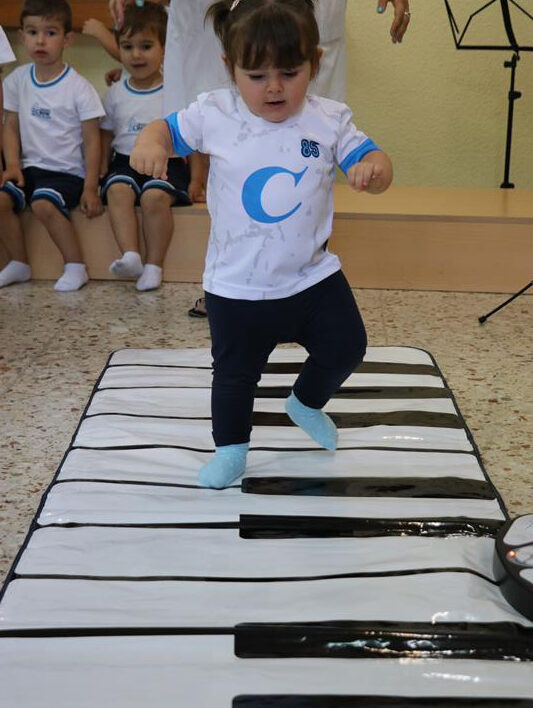
BENEFITS OF MUSIC IN CHILDREN'S LANGUAGE DEVELOPMENT
Stimulates memory and vocabulary retention.
Repetition of lyrics and rhymes in songs helps children remember new words and grammatical structures more easily.
2.- Improves pronunciation and articulation.
By singing, children practice sound modulation, intonation and clarity of pronunciation, which strengthens their speaking skills.
3.- Encourages language comprehension
Las canciones con narrativas permiten a los niños asociar palabras con significados, mejorando su comprensión y uso del lenguaje en diferentes contextos.
4.- It favours corporal expression and non-verbal communication.
Accompanying music with gestures and movements reinforces the association between verbal language and body language, facilitating communication.
5.- Increases understanding and active listening
Music trains children’s hearing, improving their ability to concentrate and their ability to distinguish sounds and tones in speech.
CASVI VILLAVICIOSA: MUSIC AS A KEY TOOL IN LANGUAGE TEACHING
At Casvi Villaviciosa International School, we understand the importance of music in the development of language and we apply it as a fundamental part of the learning process in Preschool Education. Some of our strategies include:
- Musical stimulation classes, where children interact with rhythms, songs and sounds to reinforce language in a natural way.
- Stories and songs in English and Spanish, encouraging bilingualism from an early age.
- Body expression and drama, combining music with movement to improve communication and creativity. As is done, for example, on Grandparents’ Day and Graduation Party.
- Use of instruments and percussion, helping children to identify sound patterns and improve their auditory and linguistic skills.
- The development of language through music is also developed as an extracurricular activity within the Casvi Music School.
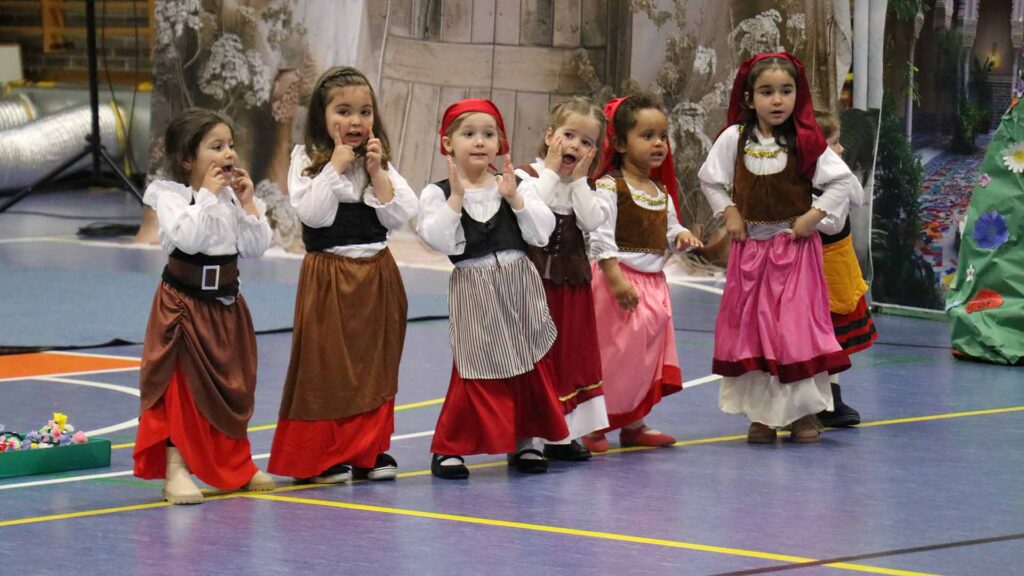
language development through music
Find out how we promote it in Casvi Villaviciosa.

